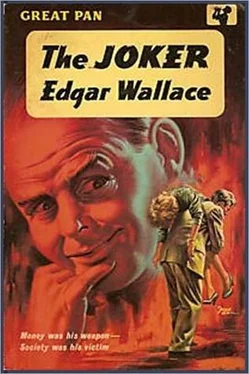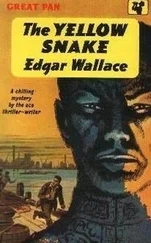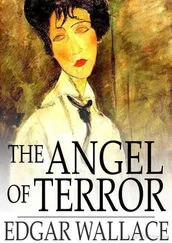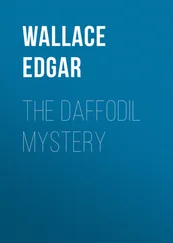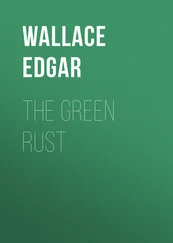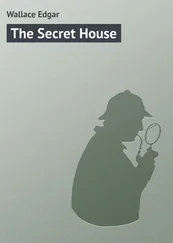Edgar Wallace - The Joker
Здесь есть возможность читать онлайн «Edgar Wallace - The Joker» весь текст электронной книги совершенно бесплатно (целиком полную версию без сокращений). В некоторых случаях можно слушать аудио, скачать через торрент в формате fb2 и присутствует краткое содержание. Год выпуска: 0101, Жанр: Старинная литература, на английском языке. Описание произведения, (предисловие) а так же отзывы посетителей доступны на портале библиотеки ЛибКат.
- Название:The Joker
- Автор:
- Жанр:
- Год:0101
- ISBN:нет данных
- Рейтинг книги:5 / 5. Голосов: 1
-
Избранное:Добавить в избранное
- Отзывы:
-
Ваша оценка:
- 100
- 1
- 2
- 3
- 4
- 5
The Joker: краткое содержание, описание и аннотация
Предлагаем к чтению аннотацию, описание, краткое содержание или предисловие (зависит от того, что написал сам автор книги «The Joker»). Если вы не нашли необходимую информацию о книге — напишите в комментариях, мы постараемся отыскать её.
The Joker — читать онлайн бесплатно полную книгу (весь текст) целиком
Ниже представлен текст книги, разбитый по страницам. Система сохранения места последней прочитанной страницы, позволяет с удобством читать онлайн бесплатно книгу «The Joker», без необходимости каждый раз заново искать на чём Вы остановились. Поставьте закладку, и сможете в любой момент перейти на страницу, на которой закончили чтение.
Интервал:
Закладка:
‘I was the only person in whom he confided, and I know the full story of Mrs Gibbins as she was called. He had met her when she was a pretty housemaid in the service of the senior proctor. The courtship followed a tumultuous course, and then one day there arrived at Oxford the girl’s mother, who threatened that unless Marling married her daughter, she would inform the senior proctor. This threat, if it were carried out meant ruin to him, the end of Miss Mercy’s patronage, the destruction of all his mother’s hopes; and it was not surprising that he took the easiest course. They were married secretly at Cheltenham and lived together in a little village just outside the city of Oxford.
‘Of course the marriage was disastrous for Marling. He did not love the girl; she hated him with all the malignity that a common and ignorant person can have for one whose education emphasised her own uncouthness. The upshot of it was that he left her. Three years later he learnt from her mother that she was dead. In point of fact that was not true. She had contracted a bigamous marriage with a man named Smith, who was eventually killed in the war. You have told me, Mr Carlton, that you found no marriage certificate in her handbag.
‘By this time, owing to circumstances which I will explain, Marling had the handling of great wealth. He was oddly generous, but the pound a week which he allowed his wife’s mother was, I suspect, in the nature of a thanksgiving for freedom. The money came regularly to her every quarter and while she suspected who the sender was, she had no proof and was content to go on enjoying her allowance. Later this was improperly diverted to her daughter, who, on the death of her mother, assumed her maiden name.
‘Marling came to be my tutor, and I honestly think that in his care—I would almost say affectionate guidance—I had improved in health, though I was far from well, when Miss Mercy had her seizure. In my crazy despair I remember I accused Marling of killing her, for I saw him pour the contents of a green bottle into a glass and force it between Miss Mercy’s pale lips. I am convinced that I did him a grave injustice, though he never ceased to remind me of that green bottle. I think it was part of his treatment to keep my illusion before my eyes until I recognised my error.
‘On the death of Miss Mercy I was so ill that I had to be locked in my room, and it was then, I think, that Mrs Edwins proposed the plan which was afterwards adopted, namely, the substitution of Marling for myself. You will be surprised and incredulous when I tell you that Marling never forgave the woman for inducing him to take that step. He told me once that she had put him into greater bondage than that in which I was held. From his point of view I think he was sincere. I was hurried away to a cottage in Berkshire; and I knew nothing of the substitution until months afterwards, when I was brought to Park Lane. It was then that he told me my name was Marling and that his was Harlow. He used to repeat this almost like a lesson, until I became used to the change.
‘I don’t think I cared very much; I had a growing interest in books and he was tireless in his efforts to interest me. He claimed, with truth, that whatever imprisonment I suffered, he saved me from imbecility. The quiet of the life, the carefree nature of it, the comfort and mental satisfaction which it gave me, was the finest treatment I could have possibly had. He made me acquainted with the pathological side of my case, read me books that explained just why I was living the very best possible life—again I say, he was sincere.
‘Gradually the cloud seemed to dissipate from my mind. I could think logically and in sequence; I could understand what I was reading. More and more the extent of the wrong he had done me became apparent. He never disguised the fact, if the truth be told. Indeed, he disguised nothing! He took me completely into his confidence. I knew every coup he engineered in every detail.
‘One night he returned to the house terribly agitated, and told me that he had heard the voice of his wife! He had been to the flat of a man called Ingle; and whilst he was there a charwoman had come in and he had recognised her voice.
‘He was engaged at that time with Ingle in manoeuvring an amazing swindle. It was none other than the impersonation of the Foreign Minister by Ingle, who was a brilliant actor. The plot was to get the Minister to Park Lane, where he would be drugged and his place taken by Ingle, who, to make himself perfect in the part, had spent a week examining films of Sir Joseph Layton. In this way he had familiarised himself with Sir Joseph’s mannerisms; and he had paid one stealthy visit to a public meeting which Sir Joseph had addressed, in order to study his voice. The plan worked. Sir Joseph went into a room with Marling, drank a glass of wine and was immediately knocked out—I think that is the expression. Ingle waited behind the door all ready made up; and Marling told me he bore a striking resemblance to the Minister. He went out from the house, drove to the House of Commons and delivered a war speech which brought the markets tumbling down.
‘But before this happened there was a tragedy at 704, Park Lane. Apparently, when Marling approached Ingle the actor-convict had been in some doubt as to whether he should go to meet him. Ingle at first suspected a trap and wrote a letter declining to meet. Afterwards he changed his mind, but left the letter on his writing desk and the charwoman, Mrs Gibbins, seeing the envelope was marked “Urgent, By Hand,” came to the conclusion that her master had gone out and forgotten the letter; and with a desire to oblige, she herself brought it to Park Lane. Marling opened the door to her and had the shock of his life, for immediately he recognised her. He invited her into the library and there she slipped on the parquet floor and fell, cutting her head again the corner of the desk. They made every effort to restore her: that I can vouch for. They even brought me down to help, but she was dead, and there arose the question of disposing of the body.
‘Marling never ceased to blame himself that he did not call in the police immediately and tell them the truth, but he was afraid to have his name mentioned in connection with a man who had recently been discharged from prison; and in the end he and Mrs Edwins took the body to Hyde Park and dropped it in the water. You tell me there were signs of a struggle, but that is not so. The footprints were Mrs Edwins’ and not the dead woman’s.
‘Marling never saw the letter which the woman brought, it must have fallen from her pocket when they were carrying her down the slope towards the canal. He told me all about it afterwards; and I know he spoke the truth.’
(Here Mr Harlow’s narrative was interrupted for two hours as he showed some signs of fatigue. It was resumed at his own request just before midnight.)
‘Marling regarded his crimes as jokes, and always referred o them as such. It is, I believe, a common expression amongst the criminal classes and one which took his fancy. The great “joke” about Sir Joseph was the plan to restore him to his friends. I think it was partly Ingle’s idea, and was as follows. Two nigger minstrel suits were procured, exactly alike, and it was arranged that Ingle, at a certain hour, should get himself locked up and conveyed to what Marling invariably called “the lifeboat”—’
‘Lifeboat?’ interrupted Jim quickly. ‘Why did he call it that?’
‘I will tell you,’ resumed Mr Harlow. ‘You will remember that he presented a police station which he had built only about fifty yards from this house; he made this presentation with only one idea in his mind: if he were arrested it was to that police station that he would be taken!
‘Sir Joseph lay under the influence of drugs in the room off the underground garage until the moment arrived, when he was stripped, his upper lip shaved and his face covered with the black make-up of a minstrel. He was then taken through the little door, which you say you have seen, along a locked passage to one of the stairways beneath the cells, and the substitution was an easy matter. Every bed in every cell lilts up, if you know the secret, like the lid of a box; beneath each bed is a flight of steps leading to the passage and to the garage—’
Читать дальшеИнтервал:
Закладка:
Похожие книги на «The Joker»
Представляем Вашему вниманию похожие книги на «The Joker» списком для выбора. Мы отобрали схожую по названию и смыслу литературу в надежде предоставить читателям больше вариантов отыскать новые, интересные, ещё непрочитанные произведения.
Обсуждение, отзывы о книге «The Joker» и просто собственные мнения читателей. Оставьте ваши комментарии, напишите, что Вы думаете о произведении, его смысле или главных героях. Укажите что конкретно понравилось, а что нет, и почему Вы так считаете.
